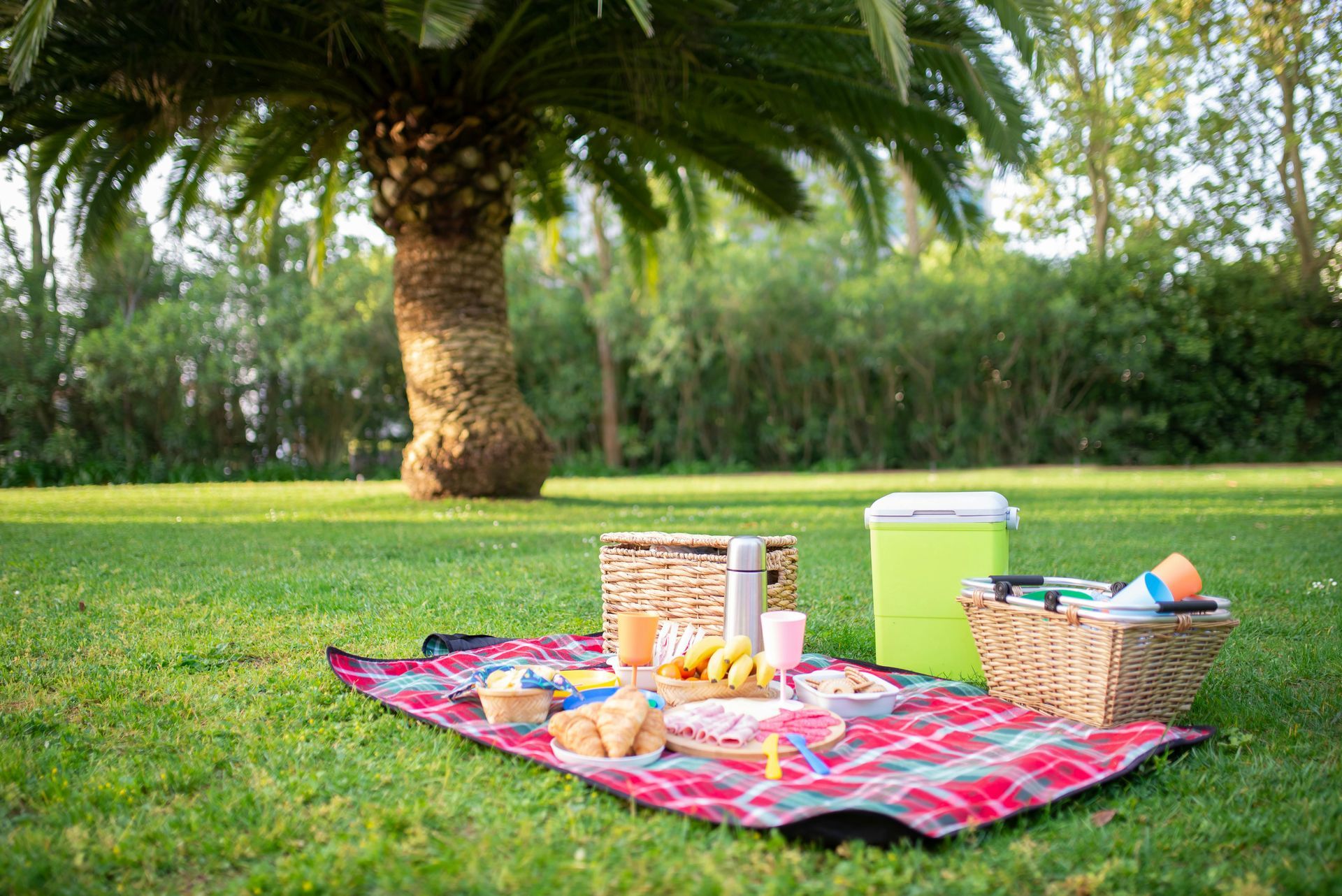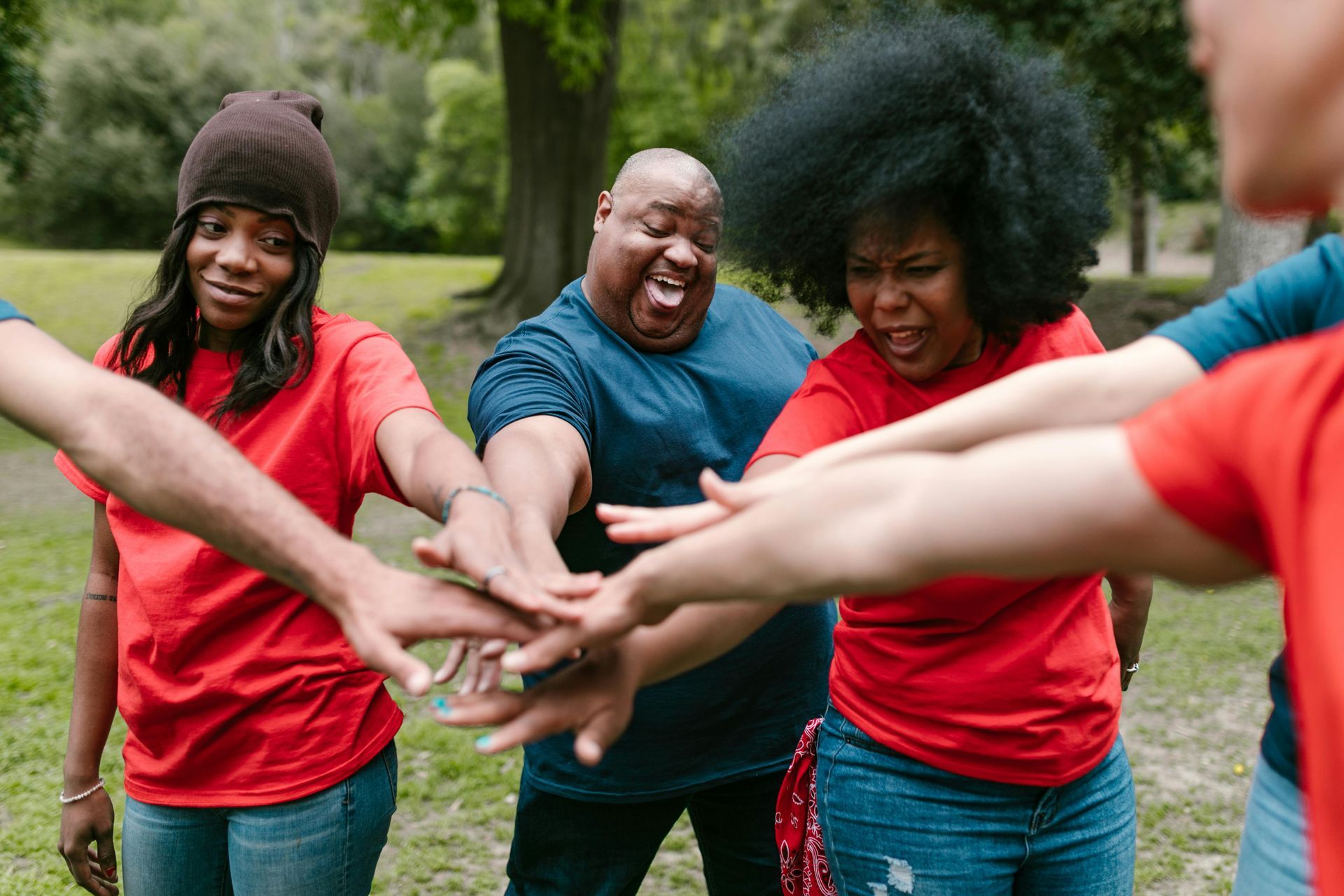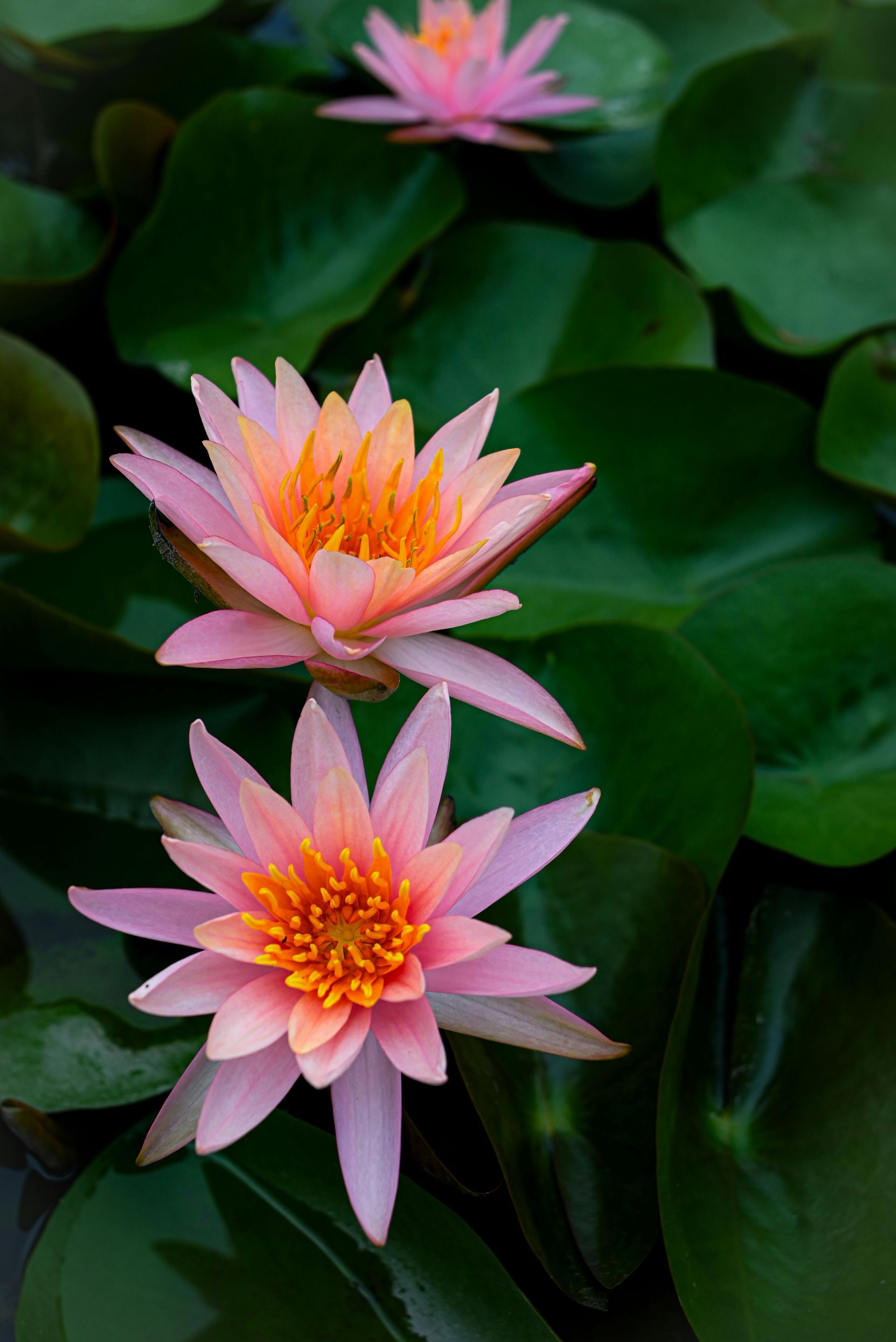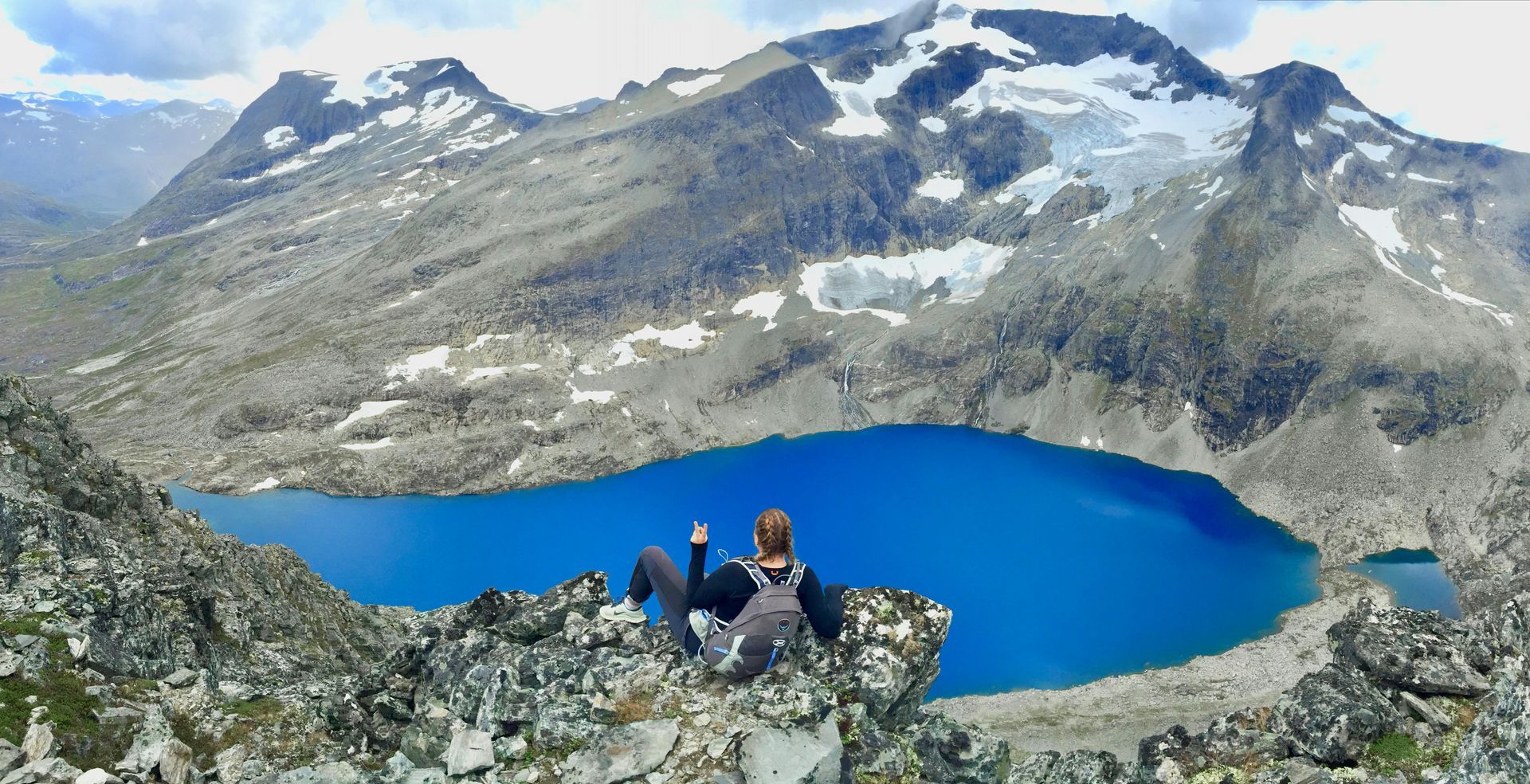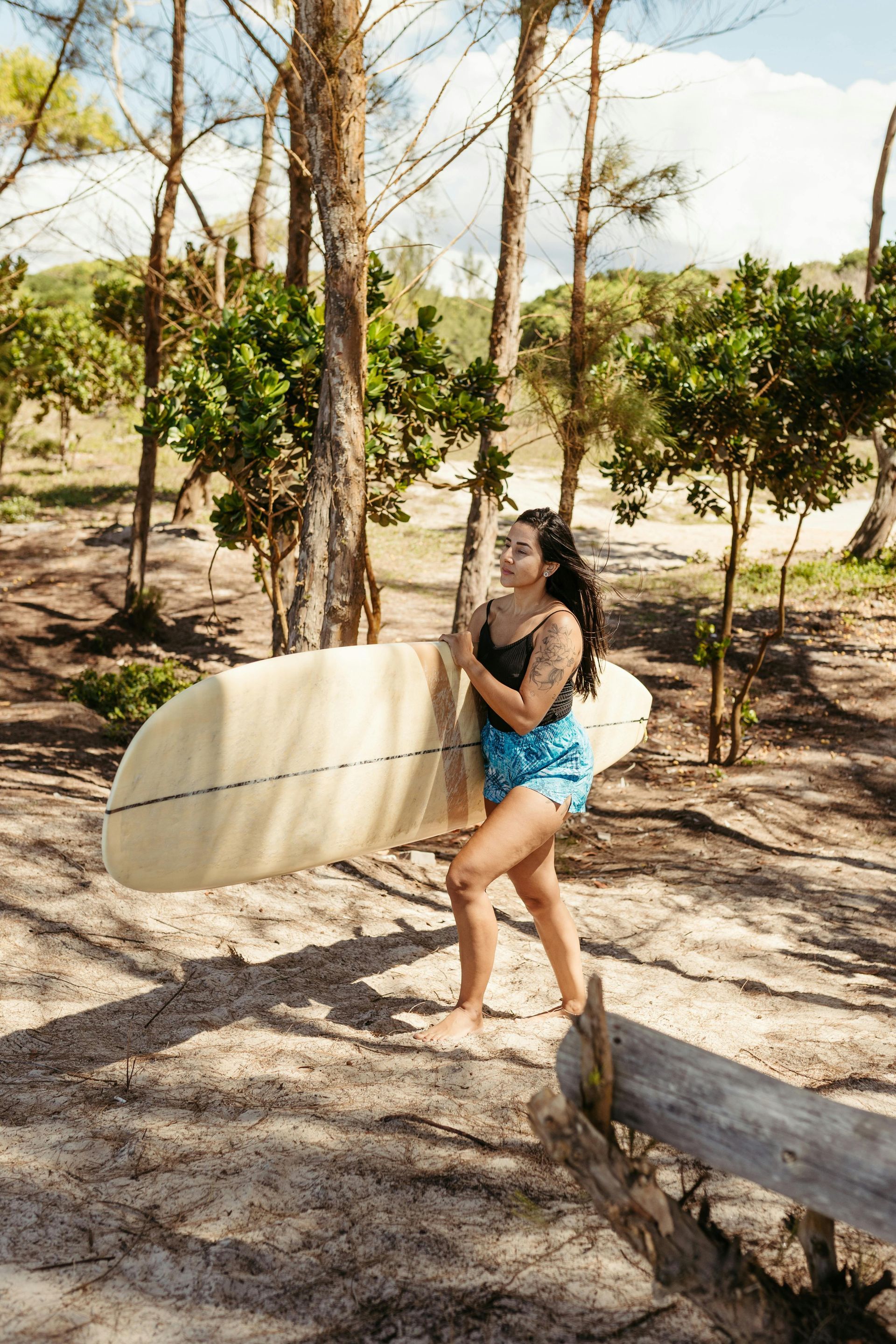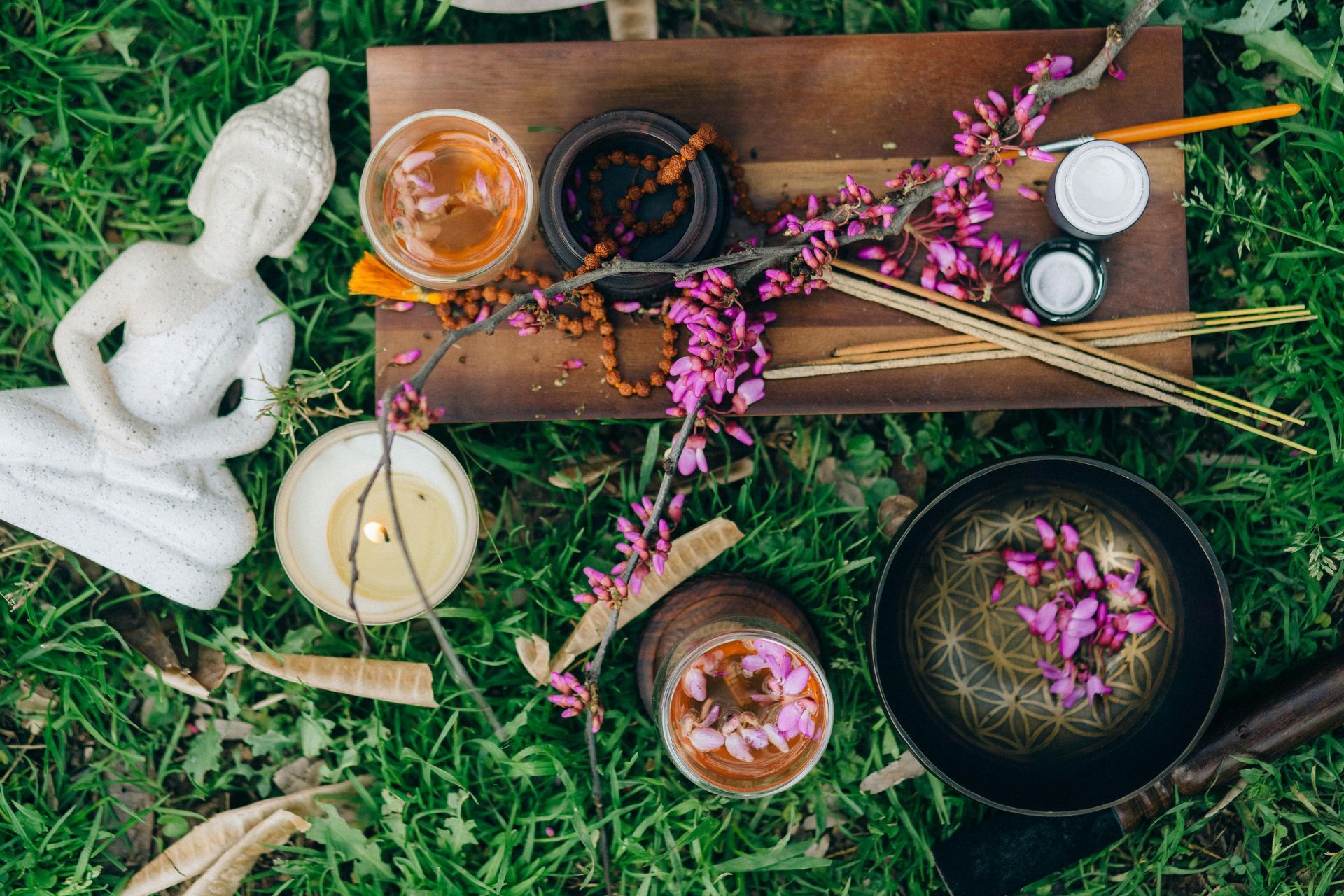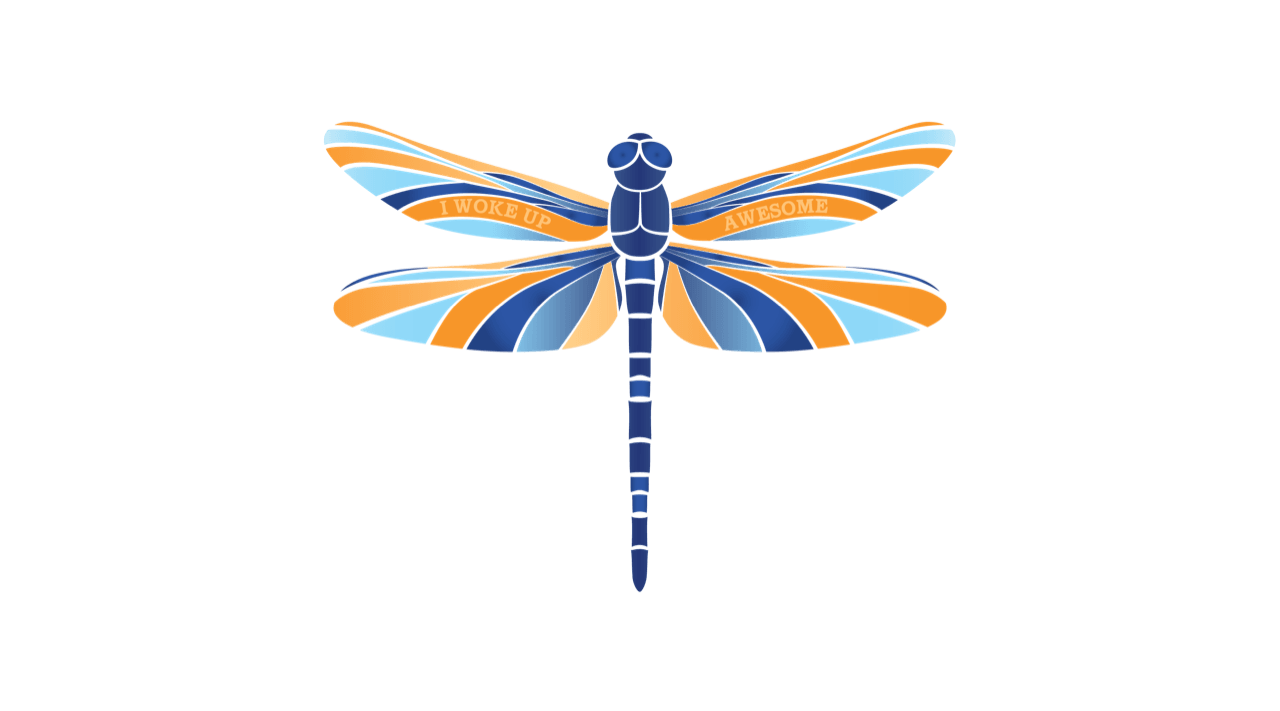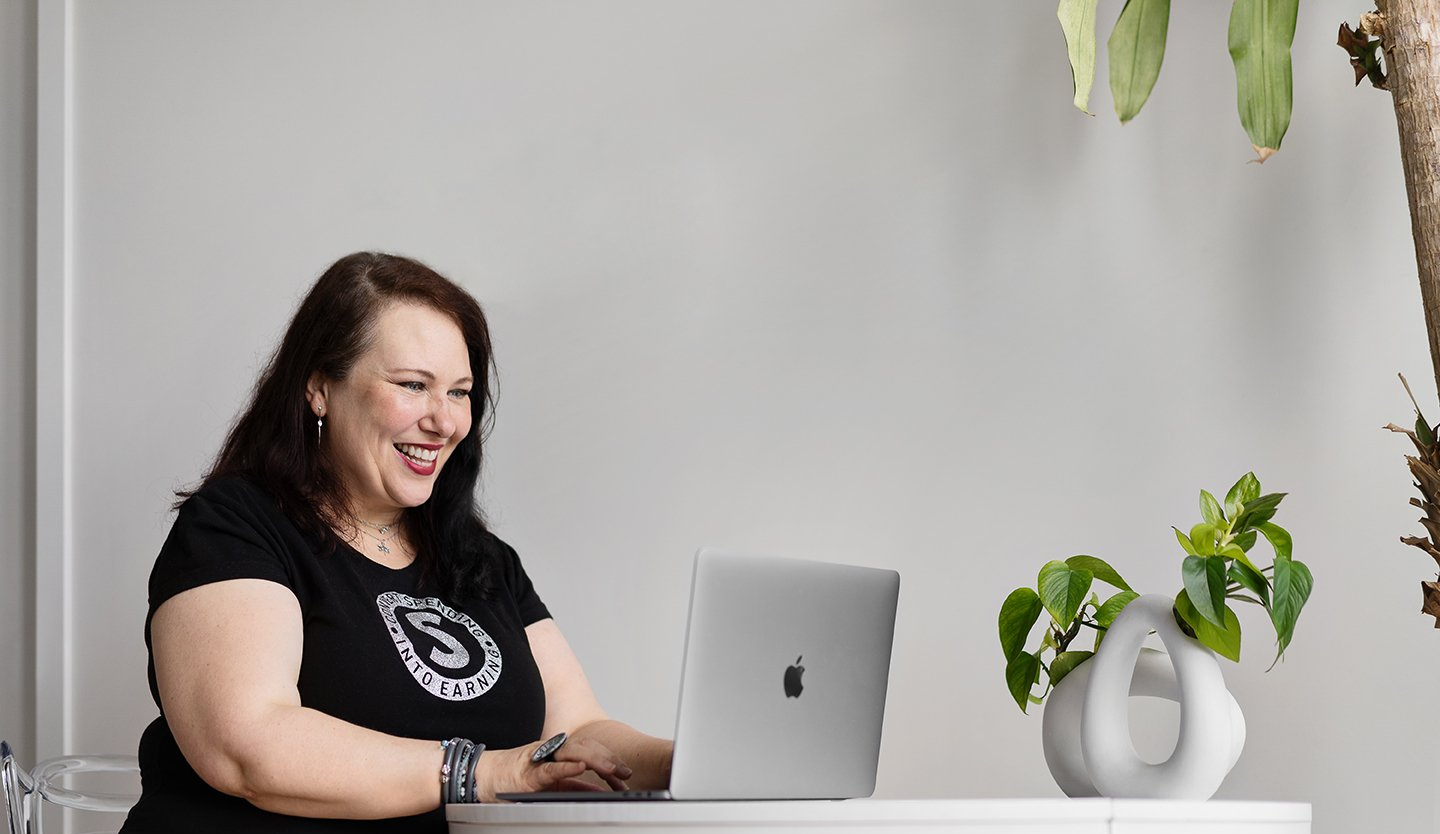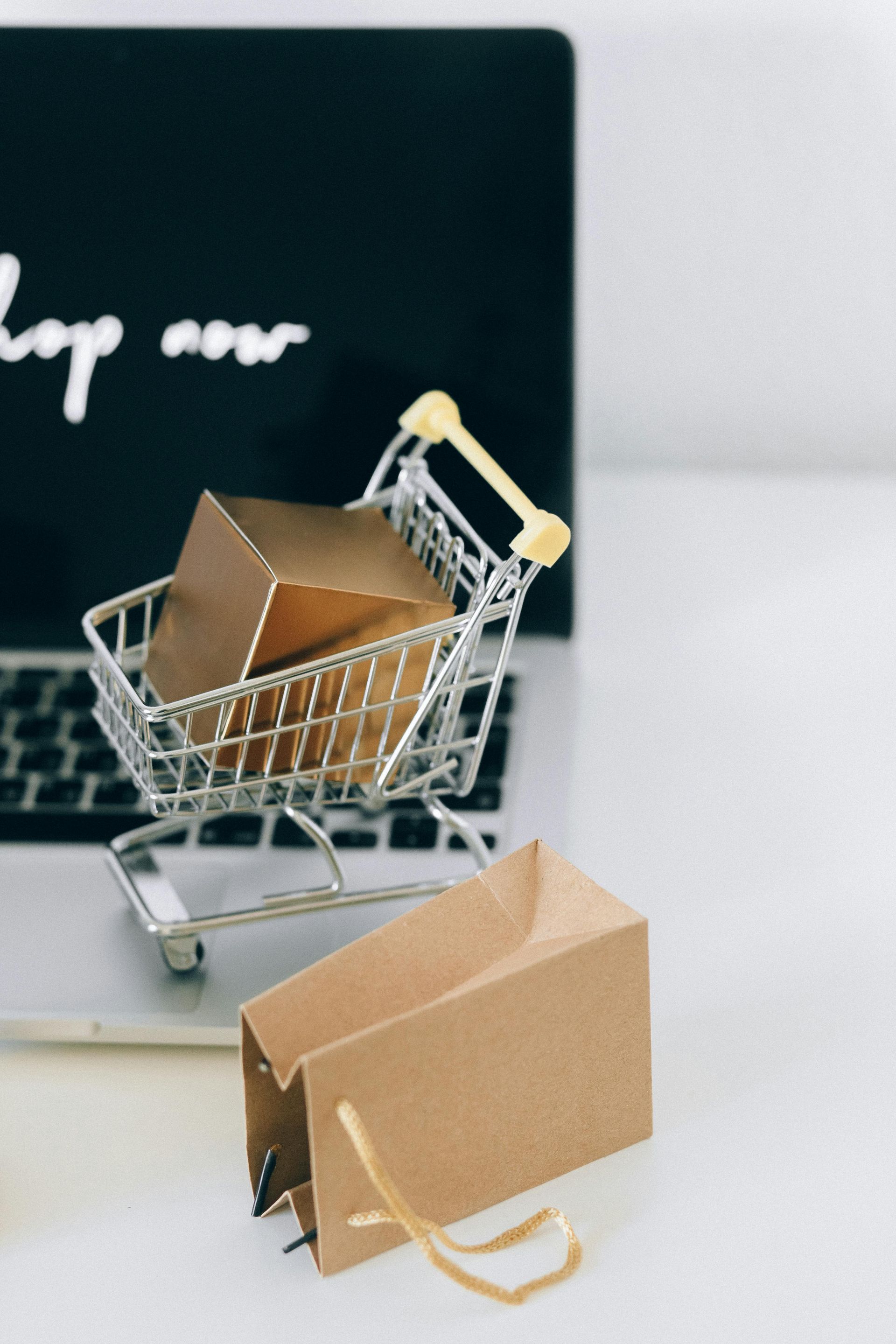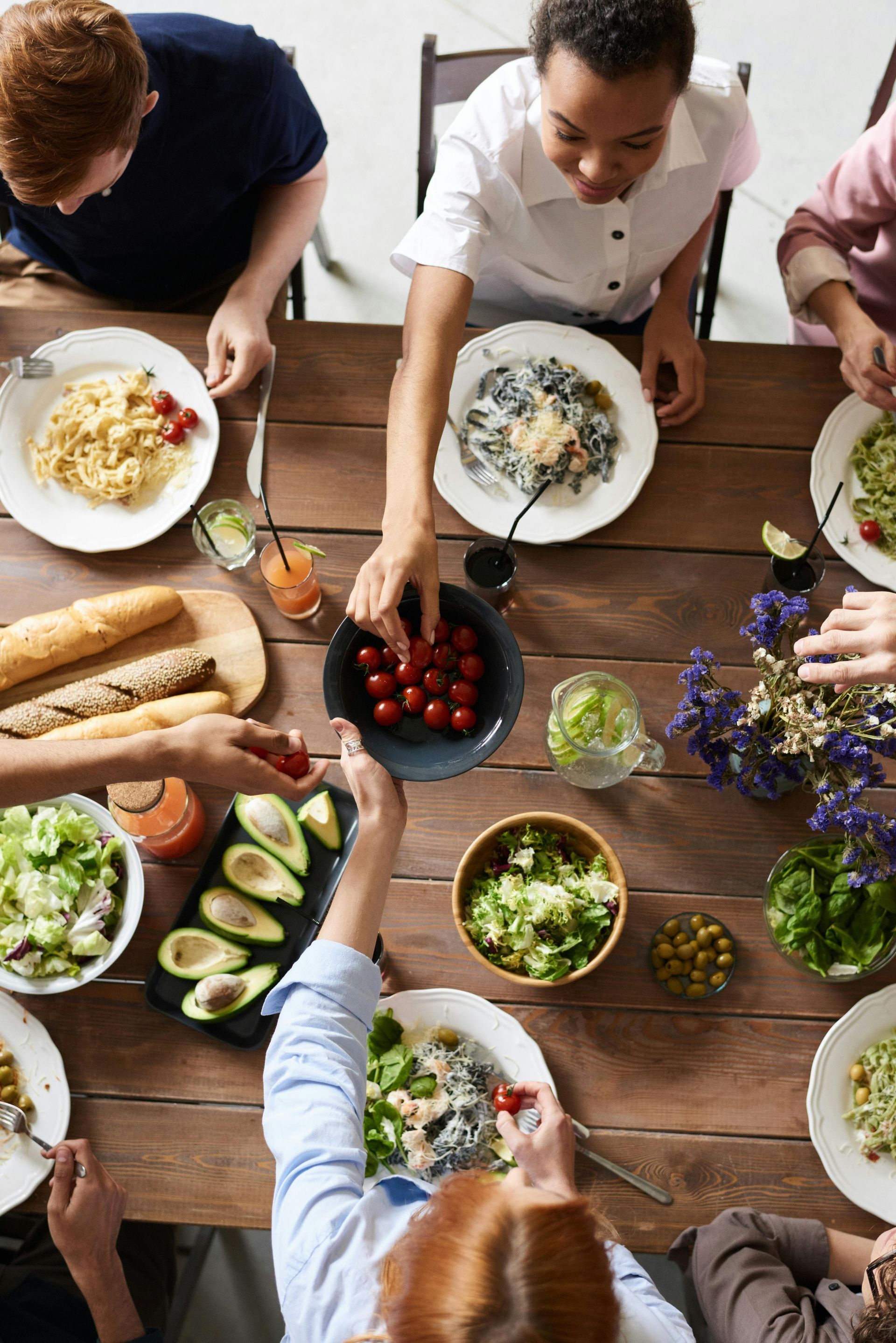Interview with Botanical Funk Artist, Ben Robinson of Philadelphia - this week's PL8STORY (Plate 76)
Share This Episode -
This week we meet Botanical Funk artist, Ben Robinson, of Philadelphia. He creates fun and colorful art on many surfaces including license plates. We’ll hear all about it and see samples of his work on our video version. We’ll hear about what inspires his creative process and how his time at art school influenced his work. Ben will also share how he deals with criticism from the public and what keeps him going no matter what. www.botanicalfunk.com Check out his work at IG @botanical_funk. Enjoy this episode and want to buy me a cup of coffee? https://www.buymeacoffee.com/pl8story
Connect with Botanical Funk:
https://instagram.com/botanical_funk
Connect with Trista's PL8STORY Podcast:
- Nominate a plate - https://www.pl8story.com
- Meet your host and get the full episode transcript - https://www.pl8story.com
- Listen and Subscribe to Trista's PL8STORY Podcast on your favorite app including Spotify, Apple, Audible, Amazon, Alexa, Google, IHeart Radio, and more
- Support the Podcast with a free cash back customer account at http://www.shopallthat.com
Transcript
BOTANICAL FUNK
[00:00:00] Trista, Host: Welcome to Trista's plate story podcast. I'm your host Trista polo. This week we meet botanical funk artist, Ben Robinson of Philadelphia. He creates fun and colorful art on many surfaces, including license plates. We'll hear all about it and see samples of his work on our video version. Audio version, you can check out his Instagram to see all of his awesome creations.
We'll hear what inspires Ben in his creative process. And how his time at art school influenced his work. Ben will also share how he deals with criticism from the public and what keeps him going no matter what. But first. Plate story news. Alice Cooper kicked off his tour in Canada this past week, while the tour is not actually named, he has a Detroit muscle vanity plate on the posters, Mustang artwork.
Cooper shared that the car is an artist's depiction of his own car and says, quote, the plate is the fact that in Detroit it's all about muscle cars and muscle music. So it's making the statement that it's all about hard rock. Cooper's north American tour will go through April, 2022. He will then move on to the international portion of his tour.
At 73 Cooper is still doing what he loves best. Sharing his own art with the world. This week's plate story guest listens to hard rock and hip hop when he paints. So he would probably be happy to have some new Alice Cooper. Uh, to inspire and motivate him on his future projects. Now let's go spend some time with him.
Welcome. I'm super excited to have my guest for today. Ben Robinson from Philadelphia. Ben.
[00:01:42] Ben Robinson, Botanical Funk: Welcome.
[00:01:45] Trista, Host: Good. Yeah, I'm so excited now we're veering off our typical pattern because you don't actually have a vanity plate. So tell me, what's your story around plates licensed.
[00:01:56] Ben Robinson, Botanical Funk: Yeah, so I'm, I'm from Philadelphia.
I do a lot of painting and drawing on all kinds of mediums, honestly, but the license plates kind of, kind of fell into them a little bit. So I just thought they were, first of all, like the old license plates, the one that have like a little character and like, cause a lot of the license plates now are kind of like.
Kind of dull and dumbed down a little bit. It's kinda like there's no cool sayings or like pictures or nothing like that. So I think I was in a thrift shop or something and saw like an old collection of something like old vanity plates. And this found some Pennsylvania ones and I was like, this could be a good, like surface to, I don't know, like make some funky artwork on and kind of like associate the, the state with like some imagery that relates to it.
So I just thought I'd kind of like set up like a good composition and something like different too. Cause I haven't really seen, I've seen like some license plate artwork, but I was trying to bring like a little something different you know, just to kind of like incorporate the whole kind of composition that it has.
Honestly. I think it's just like a unique, fun thing that paint on, honestly.
[00:03:00] Trista, Host: Yeah. And so you're an artist in Philadelphia and is this your main Medium for art or is like, how do license plates work into the mediums you choose to work in?
[00:03:13] Ben Robinson, Botanical Funk: I wouldn't say it's the main ones.
Definitely like one that I enjoy a lot and probably gets a lot of good feedback out of all this stuff I do. I started with like the traditional kind of like paper canvas you know, kind of like the traditional artwork, route, that typical mediums, stuff like that. I still do that all the time. As I started doing like more shows and kind of like putting myself out there I started like experimenting with different surfaces, like, you know, like broken skateboardsrecycled license plates like pretty much any odd ball, recycled material. I could find this, to paint on. And then the more that I was doing that, the more like the better feedback I was getting.
, I've done a lot over the years and it's been, it's been awesome. I love doing them personally.
[00:03:52] Trista, Host: That's awesome because I have seen license plates used as part of a media, more for sculpture or to actually use the plate to create like a portrait or landscape or a skyscape. And you're actually using it as the canvas.
That you then paint your own work on too. How is it as a canvas to use versus other mediums?
[00:04:17] Ben Robinson, Botanical Funk: It's a little, a little different, obviously you got like. The lettering, you know, it's raised up and everything. So you got to kind of work around like the 3d elements, but that's also like a perk of the surface.
Like you can kinda make it more 3d and like there's a different element to it. You know what I mean? It's not like a flat flat surface. So been like experimenting, like I use acrylic and enamel on it, which pretty much holds up.
Like I've had people send me pictures over the years of like year old ones and they hold up. So it obviously, you know, varies from project to project, but. Sometimes I go into things with like a, like a very vague idea, like very brief, just kind of like a starting point. And then I kind of build off of that. Like sometimes I use references, but what I like doing the most is just kinda like jumping right in this kind of like free form kind of doodling.
And that kind of like opens up the creative process to kind of like, you know, like doodle a little bit step back, analyze, see what you have. So it's kinda like. It's kind of like improvising, like spontaneous creation, honestly. But I don't know. I just think that leaves like a lot of room to really like get into the piece you're doing and not like be so confined in, like, because when, like, when you have all these references, like, I like doing all that too, but I really liked just kind of like figuring it out on the fly.
Seeing what comes from what you're doing, you know, and not being like too bound to anything you're putting down the paper, like not afraid to race, go over things. but since like the license plates that like metal. Whatever surface it is, it's kind of different to work with, but I kind of liked the challenge. Like a lot of my stuff is kind of working off of like mistakes or like challenges in the, in the piece.
So I like the challenge of like working with the raise letters or like framing it in the thing or trying to work with other elements to like, you know, bring out something different.
[00:06:05] Trista, Host: Well, you have a pretty colorful. I dunno if I want to call it psychedelic, but you have a pretty unique viewpoint when it comes to your art.
And you're talking about working in the mistakes. Can you share a little bit more about your process when you're creating an actual concept? Where do your ideas kind of flower from, in terms of the mistakes and the final.
[00:06:28] Ben Robinson, Botanical Funk: Yeah. Yeah. So I just think it brings like a more, like genuine, better creation. You know what I mean? Cause when you're like set in with what you're doing, I feel like the creativity kind of like stops.
Like you're like I want to draw like an elephant and like, that's it. Like I like nothing else. So if I want to draw an elephant, like I'll draw an elephant before. Leave it open and maybe like swirl things around and kind of blend in other elements that are just popping in my head. So I leave a lot of room for just improvising and just like in the moment, like whatever's running through my mind, honestly, it sounds weird, but it keeps it fun.
And like I'm trying to like create something interesting for people. So,
[00:07:07] Trista, Host: yeah. No, it's cool. As, as an improv actor, myself, it's different, but I can kind of get what you're saying. So it begs the question. What do you do when you're not painting to fan the flames of your creativity, like, do you have writing or meditation, yoga mushrooms?
Like what do you do to kind of fan the flames of your creativity?
[00:07:32] Ben Robinson, Botanical Funk: Yeah. Yeah. Now a lot of people kind of well, you know, like you said before, like the psychedelics, you, a lot of people associate. You know what I do, cause like, let's be honest. It's very like surreal wild, psychedelic colorful. But honestly, I mean, I just kinda like really try to dial in to like, I listened to a lot of music, so I'll just like put on headphones and like really just try and like disassociate and like be in the moment of creating, which I think really.
You know, is the best way to do it. Cause then you're, you're really like, you're not thinking outside influence. You're like strictly in the moment. But as far as like outs, I take a lot of walks around town. I live in the city and Philadelphia. So like I'm kind of like in the mix. So I'll just like take a lap around town and just see like what all the craziness is and what people are doing. And you know, I'm bad. Like you know, the whole like sticker scene, graffiti culture, the street art, like I just, like, there's just so much to view and just be like influenced by to the location on, at that.
I just utilize that if I'm feeling like I'm not really into it, or if like today's not the day, like I want to draw, but like I'm not really feeling it, then I'll just try and. Open my mind a little bit and just take a lap and see what else was going on outside my little space here. I
[00:08:40] Trista, Host: love that.
I love that you use your environment. And you're inspired by just the world around you and you certainly are in the thick of things and Philly. You also talked about when you're actually working and creating, you have music playing, what do you listen to when you're creating.
[00:08:58] Ben Robinson, Botanical Funk: I listen to a lot of, a lot of wild, different things. Like my genre is or up and down, but honestly I I'm the top two are probably like a lot of hip hop and like heavy metal, to be honest with you, like post hardcore metal scene, I'm really into that. And then mixed with like hip hop somewhat, sometimes instrumental psychedelic rock, like, so like I'm all over the place, but I find the two John Aras to be those two. It kinda like it's kinda calming in a sense, like a loud chaotic noise. It kind of like really drowns out everything else. And then like, I'm just really engaged.
I've always been a hip hop guy. Like my brothers influenced me too with that and just like my interests alone. Kinda like took me into that realm of like skateboarding is like a close association with hip hop, like graffiti's right there.
So like everything kind of like molded together with like the influences kinda, really just like blending all together. Honestly. So music is like, I honestly don't think I could paint or draw if I didn't listen to music, to be honest with you. I think that. A big driving factor. I just think it's it goes hand in hand with like any creative outlet, honestly.
[00:10:02] Trista, Host: Yeah. I would agree with you. So I've been writing a and similar to what you're talking about I use music to kind of quiet my mind and let whatever through that there is to come through.
So I totally, it definitely is a little calmer and a little more peaceful than you're referring to,
[00:10:23] Ben Robinson, Botanical Funk: Cause like the note, like you would think all that extra noise would kind of add like distractions or like not being able to focus, but like in a weird way, it kind of makes you focus more.
I don't know. It's like and it can like bring inspiration in itself. Like the lyrics you're listening to the, just whatever vibe you're creating. It all influences everything. It's all connected in my opinion. So it's a big driving factor and that's big too with like what I do outside.
So like, I go to a lot of shows, local shows a lot of concerts try and be like, you know, active in that scene and just it's just a big inspiration itself. Any like creative outlet. I'm so.
[00:10:57] Trista, Host: Yeah, absolutely. Now you're a trained artist. You went to art school in Philly. Can you share a little about how that has influenced you?
Do you think that you would be the same artist without the school?
[00:11:12] Ben Robinson, Botanical Funk: Yeah, that's a good question. I've thought about that a lot over the years, but yeah, I went to university of the arts in Philly. I went to community college before then, but. Yeah. I mean before then it was kinda like you know, the typical, what people do doodling and drawing on your own skateboarding was a huge influence and that's kind of why I feel like gravitate towards that serious, like really good skateboarding senior too.
But as far as like art school and everything, like, I think it's definitely beneficial for sure. I've definitely, I wouldn't say I don't I'll regret it, but I think there's the, I don't think it's the only way, you know what I mean? Like it's, I think a lot of people get caught up. I, I definitely did.
Like after high school, I was like, no idea what I was doing. Like that just seemed like the path to go. Like, that was just, you know what I mean? We didn't really know what was going on. And then I did that and then kind of figured out what I wanted to do from there. But like art school, like I want, that was a painting and drawing major.
And I think the best thing is, is the environment you get. Like, cause I think, I honestly think the information that you get from school that you, you can get it elsewhere. But I think the environment is like really the benefit of school is like, for me it was just like, you would be paired up with someone else in a studio and just pretty much paint, like until you're slotted time and just like completely.
Free form, like you make your rules and then the teacher would come around and talk to you. And it's like, it's kind of a crazy concept. You're in college and school. It's like, you have a direction, but you don't. I think, I think I'm being, going to art school and being around like-minded individuals that are trying to do similar things, but they're like different influences from outside, but you're all, you know, you're all painting and creating.
I think that's the most beneficial thing. And being able to talk about your work too is important. Like really being able to dial in and like convey why you painted what you painted. Cause I'm like, you know, the common person doesn't really know. A lot about it, honestly like colors and imagery is like the first suit thing.
Like most people are like, oh, I love the colors. And like, oh, it's an elephant. Like, that's like, I love elephants. But so like, I think really like getting that knowledge and being like comfortable with like, talking about what you created, like your inner creation, talking about outer is like a difficult thing to do.
But I mean, our schools are expensive too, so it's like. Yeah. There's that balance like, is it worth it to be in debt and like pay these loans for the rest of my life? Or so I go, I teeter-totter, it's a really good question. It's just like, it's a tough one, you know?
[00:13:41] Trista, Host: Well, what I'm hearing from what you said is it gave you structure, which it sounds like you have that structure still because you talk about like, I'm ready to work. And so here's what I do to make sure I work. Whereas I think somebody who just sort of follows the past. They're just going to not work if they don't feel like it because nobody ever taught them the structure of working anyway, you know, especially in a creative, like, do you really have to feel creative to get started?
Or can you do music and journal a little bit and meditate, walk around nature and be part of the culture. And like, you have very specific tools you use to get in a zone and. I think that you probably learned that, because look, this is your time to paint. This is your time to draw.
[00:14:29] Ben Robinson, Botanical Funk: That's a really good point.
Yeah, because that, that is true. You have a slot at time and the end you go somewhere to paint. It's like, you're, it's like you work, you'd go somewhere to work. So I think that's a big part too. Like actually leaving the house, going like your destination is to go paint somewhere. Really dial into what you're doing.
I think that's a good point structure. There's probably a very big thing I got out of it because I definitely, I probably do it without even realizing I'm doing it. Like I slot times, like, I'm like, oh, I have to work. I'm going to paint. It's like, I'm already thinking like setting away time to do what I want.
You know what I mean? So that's a good thing. Yeah. Yeah.
[00:15:08] Trista, Host: And the other thing I heard that you said by having to explain, almost justify your work, it probably. Created clarity for you around what you were doing, why you were doing it, why you chose to do it a certain way in a certain medium, with a certain style, by being expected to explain it to somebody else, you had to be able to verbalize it.
And that means you had to understand it. And I think that if you're doing, if you're creating, maybe you don't really get why you just are. And so you understand that probably more deeply. Than someone who just follows their muse and never really has to explain why. So that could have added some additional layers and depth to your work that you're not even aware of.
[00:15:58] Ben Robinson, Botanical Funk: Yeah. And that's exactly, that's like another benefit of being, you're talking about these things that you don't even realize in the moment, but like in like a panel of students and like teachers, they'll like totally expose something you'd even think about. And you're like, oh, like that's where that's coming from.
And I think like, especially for me, like, I was a big, like, I still am like surreal abstraction guys. A lot of that is kind of like figuring it out after you do it. You know what I mean? Like you do it and then analyze and figure out like, where's this coming from? Is there meaning in there? So yeah, I think that's definitely a big part of it, for sure.
It's kind of crazy.
[00:16:35] Trista, Host: I'm helping you justify all those student
[00:16:37] Ben Robinson, Botanical Funk: loans. I'm in school again here. It's great. It's got official.
[00:16:48] Trista, Host: So I said, I'm writing this book and I'm probably like two thirds of the way done with it. And I'm really worried about what other people are going to think of it. Like when you put your work out there, I have a friend who is a novelist, she's put out a ton of stuff, self published, and she posted on Facebook recently about the fact that you have to be willing to accept whatever response there is to your creativity, because you're putting it out in the world. You can't control where it goes, who sees it and what their response to it is. What's your thought about that?
[00:17:21] Ben Robinson, Botanical Funk: Yeah. No. I mean, that's a big asset, big part, honestly, like if you're trying to pursue. Any career in like any creative career, honestly, something that you're creating and putting out into the masses to exactly interpret and judge, it's definitely a scary thing. Like I was I've been doing this for a while now of like doing shows and markets festivals, like any kind of gig to dislike, put yourself out there.
And it's definitely,. It can make or break a lot of people. Cause I know some people who create and do everything, but they're terrified. Show their work or go outside just because of the judgment. And like, I don't know, I can really rattle you and just like shaky up.
Like, you know what I mean? Like can really like put something in your brain and make you not want to do it anymore, honestly. But for me, like, I don't know, I'm pretty laid back easy going, like I'm pretty, I like talking to people too, so I kinda like the honesty, honestly, like when I'm out there, like I want to hear what people say, and like, I'm not afraid to like, I don't know. I guess I think a going back to the art school thing, that model like thick in my skin a little bit to be in like, cause when they critique in there that no one holds back, like they're like disrespect and you almost to a certain point of like, why you're doing it, they'll flip your painting upside down and be like, oh, this looks better like this.
Like I've had that on the news, which is crazy. I mean, looking back, like it's good because the general public is ruthless and they'll give you their honest opinion, but you need to hear that because you'll, that's how you grow. That's how you like realize how your stuff's being interpreted. So like there's there's goods and bads from it, obviously.
I don't know if you're trying to do this, you just got to believe in what you're doing and that you're doing it for a reason and use support or confident in what you're doing and putting out there and like, just react to the reactions, honestly, like, you know, they're not gonna ruin my day. They're just telling me what they think.
So like, I don't really care. So I take it lighthearted, but I want to hear it. You know, I want to hear that brutal honesty because you need, everyone needs to hear it.
[00:19:21] Trista, Host: Well, how has your. Are changed as a result of the feedback you've gotten over the years, would you say that you do what you want to do anyway?
Or have you been influenced by that
[00:19:32] Ben Robinson, Botanical Funk: feedback? Yeah, that's a good question too. I would say, I mean, I feel like I still do what I want, honestly. Like I still, I feel like I'm sticking to my gun cause like, Honestly, I, I try and paint and draw like what I like to paint, draw, like what keep gets me motivated and like the imagery that I like, honestly, that doesn't not to take away from.
Like, you know, I love doing commissions and things that are completely outside of my comfort zone. But yeah, I think I'm definitely, I definitely try to make it a point to this. Really stick to my guns and like, do what I'm interested in, what I'm influenced by like really not try and take that judgment and like completely change who I am.
Like. I think that that's problematic in a lot of senses, like that can like completely derail you to creating something that you're not even like passionate about, honestly. But I say that to say, There's there's money in that. You know what I mean? Like I could paint like the license plates, like they they're taken very well.
So like, if I just like sat down and painted license plates, I probably would do financially better. I like some of these shows and things, but like, I like doing them, but I like doing other stuff too. So it's like, you can't really take that to post the heart. Like, I definitely like, you know, plant the seeds and like th the shows really let you know.
The best feedback. Like it lets you know, like what people gravitate towards the most, but that shouldn't derail what you want to create. You know what I mean? That should be just like a little note to keep in mind, but not only should really listen to yourself and your, your inner dialogue is really important.
I think.
[00:21:10] Trista, Host: Yeah, for sure. And, you know, we're sort of skirting around the conversation of self-worth. So I'll ask you the question directly. How has self-worth played a role in your journey as an artist?
[00:21:23] Ben Robinson, Botanical Funk: Yeah, and I, I think that's directly related to what we were just saying, like, especially in a creative field, like you gotta believe in yourself and have confidence and doing what you're doing.
I think self-worth is directly related to confidence, honestly, like. It takes a lot to set up, you know, a table or a tent and like put everything you're creating out there and to like a vulnerable, maybe hostile environment, you have no idea who's walking through these streets or whatever. So like, I think it takes a lot to just like post up, sit up and talk to the public about.
Things you want to do. And I think like, as a person that can really, like we were saying, that can really like affect you negatively, if you're like vulnerable and kind of like fragile and you don't really know what you're doing. And like, I'll know if someone's work, like break you. If they're like, what are you doing?
Like, I've seen this a thousand times. Like they really like lay into you. So I think that self-worth thing is just like sticking to your guns, honestly, believing in what you're doing, whatever it's doing, whatever you're doing. Like if you care about it and you're passionate, but. I think that is enough reasoning to do anything, to be honest with you.
So I think that that self self-worth is just like, you know, don't be influenced by other people's opinions on you, but I mean, it's definitely a struggle. Like I struggled with it too. I talk like I'm Mr. Hard guy over here. Not affected by what people say, but I'm affected too, but it's just like, Keeping it on the surface.
And like, this is just other people's opinions and really like having a core morals that like are important to you and just kind of like really like boil it back to them. And just like ride that out. Cause that's what I've been doing with the self-worth thing. Cause it's like, you can get lost in, in any creative out anything you're doing.
Honestly, you just get lost in it and like thing, what is this worth it like, is this the right path? Like, am I spending my time wisely, but there's gotta be a reason there. You know what I mean? There's gotta be, I don't know. It's got, there's gotta be something there to make you want to do this. So that's, I'm just kind of riding it out and kind of going off.
There's like simple morals than me and not this. Yeah, I believe myself, honestly.
[00:23:32] Trista, Host: Yeah. I think that's so important. I think that we can allow other people's opinions to impact us, but not own us. Cause I think when we let them own us, that's when we become the victims of, you know, public opinion . So where can we see your work? You see, you're talking about doing shows and things like that. Where can people come and find you?
[00:23:55] Ben Robinson, Botanical Funk: Obviously on the social media outlets on Instagram at @botanical_funk, that's kinda like the main source.
Honestly. Instagram's like everyone just seems to use that the most, in my opinion I have a online shop website, botanicalfunk.com. And that's kinda like the alias that I'm pushing. It's this kind of. I like the name and it kind of sums up like what I'm into, honestly. And like the, the content I'm putting out, just, it just seemed to work.
So like a lot of organic, like plant-based kind of imagery mixed with like the funky, surreal, urban influences. So social media or those to have some stuff in a shop in Souderton calledArt on the Hill. It's like a little, like really cool local gallery. I got some stuff in there. The lady really nice.
Shows are kind of sporadic. I do those. I'm trying to do more of them. Cause like, I, I also have a full-time job that pays my bills. So with the time that I have outside of that, any like the Philly markets, I think there's some coming up like punk rock, flea markets. But any little DIY shows or like local scene I'll do anything small to big.
So but social media is like the big thing, Instagram.
[00:25:02] Trista, Host: Yeah, it seems like with Instagram, there's now a way for you to put yourself out there without having to be accepted into a gallery and shows, I mean, you know, 20, 30, 40 years ago, that was how you got seen. If you weren't in a show, if you weren't in a gallery, nobody knew your stuff.
And then I think, yeah, absolutely. And I think that there, the it with the Instagram and, and other mediums, it's so much easier to get your work out. So,
[00:25:30] Ben Robinson, Botanical Funk: absolutely. Yeah, it almost seems like before then, like, like how did they do it before that? And you know what I mean? Because it's like, I don't know. You have to really like, be out there physically putting in the time.
And that's like kind of what the markets and like shows are. Or be
super
[00:25:45] Trista, Host: creative, like Banksy
[00:25:48] Ben Robinson, Botanical Funk: or do something completely off the wall. That'd be like to go viral in that sense. But yeah, it's pretty crazy. Pretty crazy.
[00:25:55] Trista, Host: Well, you mentioned that this is not your full-time gig. You have a full-time gig that pays your bills, but yet you're still pursuing art.
When we spoke. Previous to this. You said that you did learn a little bit about the business of the art scene in art school. Is it worth it like being an artist, putting yourself out there doing this grind, like in addition to your full-time job?
[00:26:21] Ben Robinson, Botanical Funk: Yeah. That's the, that's the question right there. I mean, I surely that's an everyday struggle cause it's the balance is like, it seems impossible at times, you know what I mean?
Like. Because the cost of living is so high. And then, you know, everyone's got different financial circumstances, but yeah, like to, it's just, you gotta be realistic with it too. Like these creative kind of paths that people take musicians, you know, authors. So be it it's like. Yukon a teeter-totter with like the wild, essentially.
It is two full-time gigs. Like I feel like I have two full-time jobs, like, which is tough, but it's just a, no, I struggle with it all the time, because it's like, you need your time. Your time is valuable to do what you want to do and create it. And you need that time to like, advance your interests and like create avenues in that sense.
But at the same time, you got to devote time to a job financial career that. Pays your bills and keeps you afloat because you know, you hear the success stories all the time where people like that will just quit their job and like hit the road and like make, be successful. But like, I don't, that's not really crazy realistic.
Like that's like a few amount. And like, I mean, it's definitely possible, but I don't know as like a painter and like an illustrator, you gotta be realistic. Like, I would love to quit my job and do this full-time and like really see what, what can happen from it. But. You know what I mean? That could really set you up for a bad spot.
But like, I don't know. At the same time I contradict myself all the time. Like you got to take risks to get where you got to go. So like maybe that's a calculated risk. But I think it's worth it to get back to your question. I do. Like, because especially if you're like just working a job just to get by, but you have other passions and interests, like you can't let those die.
That's that's a constant inner dialogue of mine.
[00:28:13] Trista, Host: Yeah, sure. I mean, we all have those constant conversations that keep bubbling back to the surface
I love your, your commitment to your passion. I mean, it's so clear to me now, do you have any artwork for our video friends that you can share? Do you have anything nearby that you can
[00:28:30] Ben Robinson, Botanical Funk: show us? Yeah. Have the keeping the license plate deem. I have the one that I have left here.
So, like I said, the license plates, they are probably like between that and like the broken skateboards, they con they are the most popular. And like, I really like, I really like painting on them, honestly.
[00:28:48] Trista, Host: explain this to our audio audience and then they can find it on Instagram.
[00:28:55] Ben Robinson, Botanical Funk: This one's pretty cool.
I was on super wild too. So it's got the, an old Pennsylvania license plate. And like I was saying, it's got like, you've got a friend in Pennsylvania. Like, I, I think they should bring that stuff back. Like, they're so much more unique. Like some of them say like the Keystone state or like, have like cool little things.
But but yeah, this one is obviously I'm a big sports guy too. So like any Philly sports. So Pennsylvania, I got the flyers mascot gritty on there with like, kind of like. Octopus tentacle situation coming out of the middle and then like the Keystone shape is part of the license plate. So that's why I'm like, yeah, like the license plate itself brings like its own elements that you can incorporate.
And then what I want to put into it. So but yeah, this one's pretty cool. She's like, you know, kind of busting up like an old hockey player, that gritty clinicals thing, and everyone loves gritty and Philly. So it's like a, it's an easy subject matter to kind of create off of, you know,
[00:29:53] Trista, Host: Yeah, I think that was the first one I saw on Instagram that had me connect with you.
So it's definitely a very, very cool one. So it'd be easy to find. Just look for the octopus. You've got a first friend in Pennsylvania plate. If you want to see it close up on the, on the Instagram,
[00:30:10] Ben Robinson, Botanical Funk: that's on a website too. Like my website is pretty much like whatever I create, I put on there. Instagram I'm always like progress pictures.
Life around the studio kind of deal. But like I said, they they're pretty popular, which I'm really grateful for. Like the feedback's been great. I would love to have like, just a series of like 20 of them, but again, that comes back to having time to do it and like all this stuff, but yeah, there, there are tons of fun.
I love, I love.
[00:30:36] Trista, Host: That's awesome. So what's in the works for you. What's coming up in the time that you do have to dedicate on your art. What are you going to be working on in the near future?
[00:30:45] Ben Robinson, Botanical Funk: I'm working on a lot of new paintings actually. But I kind of dabbled between the both of like recycled surfaces and the traditional.
So I actually have a few like traditional paintings I'm working on kind of bigger size. And then I'm always trying to like dabble and kind of picking the. Kind of like the material goods, like kind of like a shirt. Like I got the cert on right now, bamboo guy. So I eventually want to dabble into like apparel.
I'm a big sticker guy. I'm always making stickers. Just got into making pins, which are really cool. Like enamel pins. People love those. And they're. Pretty fun too. Like there's the quality of those things is unbelievable, but I'm just always trying to push and like find new fun things to paint on and like kinda break up the, the norm here of just like seeing like a table of just like prince and, you know, like it's just rinse and repeat kind of a lot out here.
Not dissing anyone. Like, I love to see it personally, but I've been paying on like cigar boxes. The broken skateboards is still a big thing. I think I might do like planners, like kinda incorporate like the botanical side more with like some pots and things like, things like that. Oh, anything, it's a day-to-day thing, whatever catches my eye or I'm like, oh, that'd be kinda cool to paint on and like some different, so it comes and goes wherever the, whatever the day brings.
[00:32:03] Trista, Host: Yeah. I love that. You're definitely fully immersed. And the process. And like you said, you follow what inspires you, but you also do commissioned work to, right?
[00:32:14] Ben Robinson, Botanical Funk: I do. Yeah. I love doing commissions. I'm I'm pretty much like any art endeavor or like message someone, you know, throws out to me. I'll do like, I've done.
Like a lot of my stuff is surreal kind of psychedelic base, but I've can do like realistic portraits. Like I've done a lot of pet portraits, surprisingly, which is pretty funny and cool. A lot of license plate commissions from like, cause I'm like obviously Philly, PA base, like a lot of it's those plates, but I've done a lot of like other states, which is really cool.
Yeah, I'll do anything, honestly. Typography digital work. It's just like anything that's associated with, like that realm I'm in to just to like, get me out of what I'm doing, you know? So, cause it's you know, it's taxing the restaurant world, but it is what it is. That's just one of the people in it.
So I'm not gonna, I'm not gonna complain, you know? Yeah.
[00:33:07] Trista, Host: You could be grateful for it. It pays the bills. It has its place in your life. And like you said, the balance is really important and it sounds like you. Maybe sometimes struggle with it, but that you work to keep that balance so that you can have the inspiration, because if you're totally like squished down by stress and upset from your job, you'll never create.
So you have to be maintaining that
[00:33:31] Ben Robinson, Botanical Funk: inner peace. Like that'll take, like that'll make you not want to paint and draw, or like, that'll just. Yeah, that'll take you in a direction that I don't, I don't want to go and I don't think anyone should be, should let that happen, honestly, but it's so easy to be like, so in, in what you are, and just like lose track of what's going on, but yeah, I love the commissions.
I did a a license plate commission for this. I don't know if they're still in business. I don't think they made it through COVID, but I did like license plate plates for them. So like they would make the food and put the food on the license plate. It was kind of like an apocalypse. Like themed restaurant, it was in the safe.
Yeah. So it was like, you know, apocalyptic, you know, if you were out in the wild, there was nothing to eat food off of you grab a license plate and put it on there. So I did like 40 of them. I'll have to send you pictures, but. Yeah, that's this kind of gets back to like, I'll do any commissions, like anything.
Cause that alone can like spark a new avenue or like someone coming to me with like a pet portrait could like be influenced for something else. You know what I mean? Like that I want to do down the road. So I really have like no limitations. Like I kind of take pride in being able to like do whatever or at least.
Accepting the challenge of doing any content or any projects. So done a lot of fun ones. So yeah, people hit me up for any fun, funny commission.
[00:34:50] Trista, Host: That's awesome. Well, I have to say, I have so enjoyed learning about your process and your creative outlets, and I'm glad that the license plate thing brought us together.
So I just really appreciate you being here. I'm going to have all the ways people can connect with you. On your Instagram, your website. And anything else that we have that we can show off your work. So that'll all be in the show notes. So people should go check out all of this work that Ben does, all of his art.
He's amazing. And it really, it, it stays with you because it's so unique. So I love the work that you're doing and I appreciate you sharing it on my podcast.
[00:35:31] Ben Robinson, Botanical Funk: Yeah. Thank you for reaching out out of nowhere. It's like, this is awesome. I had no idea you were doing this. This is like a real unique podcast.
This is awesome. So, ah,
[00:35:39] Trista, Host: thanks. Yeah, absolutely. So I always like to end with turning the tables and see, do you have a question for me that you'd like to ask?
[00:35:47] Ben Robinson, Botanical Funk: I see the the tapestry in the background, a little funky chameleon.
Do you have any like art interests either? Is there any, like an artistic side and you obviously, you said you're writing a novel, like what do you what's the creative side of you?
[00:35:57] Trista, Host: I have a very musical family, so I grew up, you know, the song she could sing before she could talk. She could dance before she could walk.
Is that a Fleetwood? Yeah. So that was me with singing. I could, I was singing and harmonizing. I love doing the harmony parts. So that's my favorite. I don't sing too much anymore, but I definitely have always loved being able to do that. I was in a sixties band when I worked in Manhattan about 20 years ago.
Wow. And I've sung at weddings. And I was actually, I don't know if you can see the album here. Yeah. So that was from when I was a senior in high school, I was in , Hicksville, long island. And my choir director was the choir director that said to Billy Joel, you know what, dude, you've got something here.
You should go. So they stayed in con in contact. Cause that's where he went to high school. He didn't graduate from Hicksville, but that's where he went. And so my choir director was. Retiring that year. And he was asked to do the harmony to write the harmony part for Leningrad from the Stormfront album.
And he chose a group of us and we went into Manhattan into the studio and we hung out with Billy Joel and Mick Jones. And we laid down this harmony tracks. So that's the music signed by everybody that was there.
So if you ever, if you own the album, go look at the credits with members of the Hicksville high school choir. That's me.
And the novel thing just sort of happened recently, I have these really, really vivid dreams. And I've always said, if I could remember these dreams, they would be epic, like multi series books or movies. Celebrities would play them. I mean, they're just so vivid and detailed and the stories and characters are so well-developed for my dreams, you know, I can relate.
So I said, if I could ever remember them, Yeah, that I would, I would be an amazing writer. And so I, I just kind of through a series of serendipitous events, I decided to be open to it. And so I'll wake up at like three, four in the morning, which is a really inspired time to create. And I just started, if I would wake up, I would get up and I would write and see what happened.
And the next thing I knew, I had like 150,000. Maybe not quite that it's like 140,000 words written down in no particular order. Just the order it comes when I'm up at that time, I did put it down a few months ago. Cause I had some stuff happening in my family that I've been kind of like avoiding dealing with my emotions.
And if you're not dealing with your emotions, then you're not allowing your creativity either. Like, I feel like they come from the same place. So if I'm shut down over here, I've also shut down over there. Don't let
[00:38:58] Ben Robinson, Botanical Funk: it pass you by.
[00:39:01] Trista, Host: That's awesome. It's been amazing talking to you. I really enjoyed it. We kind of went off the rails with the topic because you don't have a vanity plate. But I'm glad we did, because I love how you are bringing focus to license plates in a completely different way than people think.
And being part of the, I guess you could call it the license plate culture. Now with this podcast, I'm opened up to so many different ways that license plates show up, especially creatively and yours is very, very cool. So thanks for being on.
[00:39:35] Ben Robinson, Botanical Funk: Yeah, thank you so much. This was a ton of fun. I I appreciate this was awesome.
Thank you.
[00:39:40] Trista, Host: All right. Have a good rest of your day. Thanks Ben.
[00:39:42] Ben Robinson, Botanical Funk: Thanks you too.
Thanks for listening. Please subscribe to Trista's plate story podcast, share it, or leave a review. If you would like to nominate a license plate to be featured in a future episode or you have an interesting plate story news item to share with me, leave us a comment or visit plate story.com. That's P L number 8. story.com and give me all the details.
This is Trista polo wishing you well on the road to your next adventure.
I Woke Up Awesome Blog
